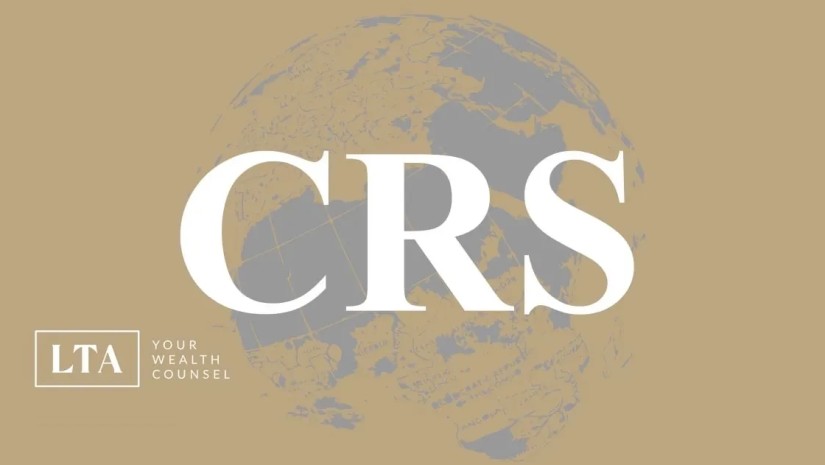Introduction of CRS in Georgia
Georgia has taken a significant step towards global financial transparency by joining the Common Reporting Standard (CRS) agreement. This move signals the country's commitment to combating tax evasion and fostering international cooperation in the exchange of financial information. In this article, we will explore what the CRS is, discuss changes to the Tax Code of Georgia, how it affects banks and financial institutions in Georgia, and the role of the Revenue Service in implementing and overseeing the CRS framework.
What is CRS?
The Common Reporting Standard (CRS) is an international framework developed by the Organization for Economic Co-operation and Development (OECD) to facilitate the automatic exchange of financial account information between countries. The primary objective of CRS is to prevent tax evasion by ensuring that tax authorities have access to comprehensive and accurate information about the financial accounts of foreign residents.
Countries parties to CRS as per 2023: Albania, Andorra, Anguilla, Antigua and Barbuda, Argentina, Armenia, Aruba, Australia, Austria, Azerbaijan, Bahamas, Bahrain, Barbados, Belgium, Belize, Bermuda, Brazil, British Virgin Islands, Brunei Darussalam, Bulgaria, Canada, Cayman Islands, Chile, China (People's Republic of), Colombia, Cook Islands, Costa Rica, Croatia, Curaçao, Cyprus, Czech Republic, Denmark, Dominica, Ecuador, Estonia, Faroe Islands, Finland, France, Georgia, Germany, Ghana, Gibraltar, Greece, Greenland, Grenada, Guernsey, Hong Kong (China), Hungary, Iceland, India, Indonesia, Ireland, Isle of Man, Israel, Italy, Jamaica, Japan, Jersey, Jordan, Kazakhstan, Kenya, Korea, Kuwait, Latvia, Lebanon, Liechtenstein, Lithuania, Luxembourg, Macau (China), Malaysia, Maldives, Malta, Marshall Islands, Mauritius, Mexico, Moldova, Monaco, Mongolia, Montenegro, Montserrat, Morocco, Nauru, Netherlands, New Zealand, Nigeria, Niue, Norway, Oman, Pakistan, Panama, Peru, Poland, Portugal, Qatar, Romania, Russian Federation, Rwanda, Saint Kitts and Nevis, Saint Lucia, Saint Vincent and the Grenadines, Samoa, San Marino, Saudi Arabia, Seychelles, Singapore, Sint Maarten, Slovak Republic, Slovenia, South Africa, Spain, Sweden, Switzerland, Thailand, Trinidad and Tobago, Tunisia, Türkiye, Turks and Caicos Islands, Uganda, Ukraine, United Arab Emirates, United Kingdom, Uruguay, Vanuatu.
How CRS works?
CRS ordinarily works in a following way:
- Financial institution (e.g. bank, investment fund) collects information of its clients' tax residencies and each client has a status either verified or not-verified. Verified are those who has tax residency in other CRS country.
- Financial institution shall share private information of verified clients (such as full name, date of birth, tax residency, tax identification number (TIN), bank account number / balance and or other bank-related information of the client, other relevant information) with Revenue Service of Georgia;
- Revenue Service of Georgia shall further share this collected information with the authorized bodies of respective jurisdiction of the client's tax residency.
Changes to the Tax Code of Georgia
The Tax Code of Georgia was amended, added Articles 702 and 2792.
According to the Article 702, financial institutions, such as banks, must collect and provide information on customers' tax residency to the Revenue Service. The Revenue Service in Georgia will serve as the central authority responsible for overseeing the implementation of CRS. It will collaborate with financial institutions to ensure compliance with reporting obligations and facilitate the exchange of information with other participating jurisdictions.
The Revenue Service will play a pivotal role in developing guidelines, providing support and training to financial institutions, and ensuring the secure transmission of information to and from foreign tax authorities.
If the user is a tax resident of a country other than Georgia, their details should be disclosed to the Revenue Service.
However, if the user is solely a tax resident of Georgia, their information should not be provided to the Revenue Service. Financial institutions must ascertain the tax residency status of every customer as per the CRS, irrespective of their nationality.
Also, under CRS, Georgian Revenue Service will receive from other countries respective banking information about its tax residents.
These changes in the law came into effect from January 1, 2023. Financial institutions are required to ensure the timely submission of information for the revenue service starting from January 1, 2024, annually before June 30. This is crucial for obtaining comprehensive annual account information.
The information in the declaration (tax residency country, tax identification number, etc.) will be transferred to the Revenue Service also the Revenue Service is authorized to request the reporting financial institution to submit additional information, such as information on the accounts and products in the user's bank. The tax authority shall be entitled, in order to verify the received information, to require that the reporting financial institution submit additional information, for which purposes the tax authority shall set a reasonable period of time for it of at least 15 calendar days.
We think that the request for additional information from financial institutions, beyond the initial declaration, serves several purposes e.g.: Verification of accuracy: ensuring the accuracy of the initial declaration provided by the user regarding their tax residency and related details. Comprehensive oversight: to have a comprehensive view of an individual's financial situation, including accounts, products held, and balances, for effective oversight in line with tax regulations and compliance.
Additionally, the Revenue Service will be responsible for enforcing penalties in cases of non-compliance and fostering a culture of transparency within the financial sector. Article 2792 of the Tax Code provides for penalties for non-fulfillment of obligations e.g. failure to comply with the requirements may lead to penalties, such as a fine of up to 3,000 GEL per day for financial institutions that violate the established deadlines for submitting information.
Results of Inaccurate Self-Declaration
The bank reserves the right to decline opening or closing an account. Should a foreign tax residency be identified, the bank is obligated to notify the Revenue Service.
Definition of Tax Residency
Tax residency definitions vary by jurisdiction. According to the Tax Code of Georgia, a Georgian resident for the entire current tax year shall be a physical person:
- Who has actually stayed in the territory of Georgia for 183 or more days in any continuous 12-calendar-month period ending in that tax year;
- A physical person who is High-net-worth individual and meets the requirements stipulated by the relevant Order;
- A physical person who was in a foreign country in the public service of Georgia during that tax year.
For more detailed information about tax residency in Georgia you can read our article.
When opening an account or making changes related to investments or personal information, the bank shall requests certain details from the user. These details include name, address, place and date of birth, tax residency country, and tax identification number (TIN). So far, it is implemented by Bank of Georgia only, but we expect to get other banks involved soon as well.
So far, no proof of residence is required under the questionnaire of the bank, however we assume that based on experience of other countries this will change.
These changes affect many international people and businesses investing in Georgia and having it as a safe harbor. It will remain safe, if the everything is done in a proper way. For tax / banking / legal consultations - feel free to reach out our law firm in Georgia.
DISCLAIMER: This is not a legal or tax advice. Our opinion is not binding for any court or tax authorities. Any kind of investments bears risks. Using the website does not trigger lawyer / accountant – client relationship.
Author - Legal, Tax & Accounting Services























